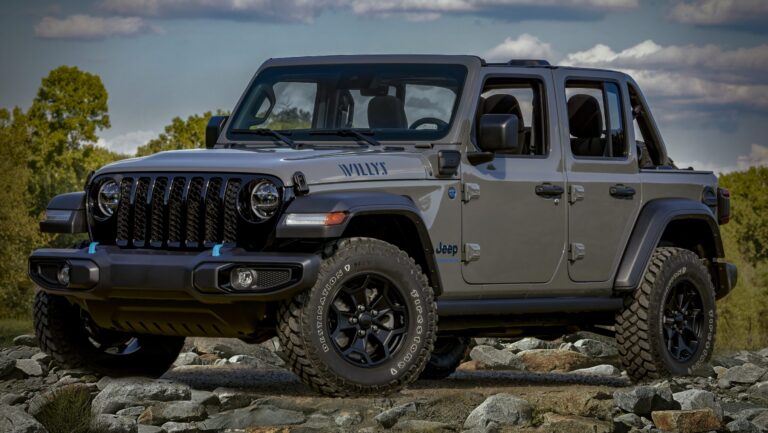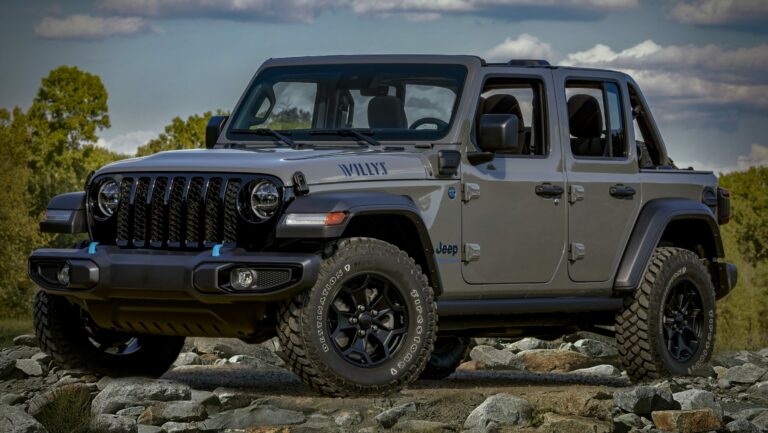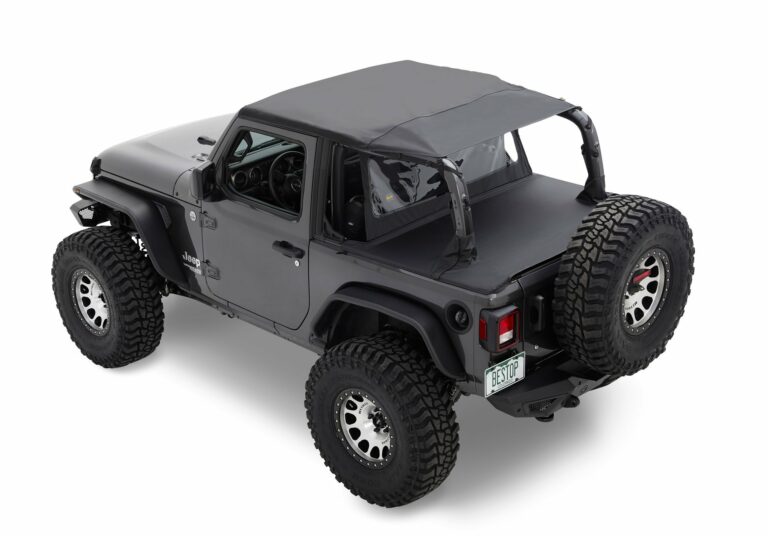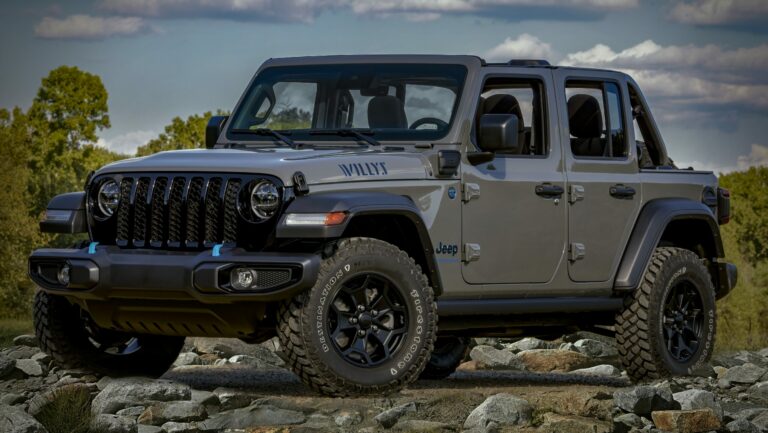Jeep Rubicons For Sale In Colorado: Your Ultimate Guide to Off-Road Dominance
Jeep Rubicons For Sale In Colorado: Your Ultimate Guide to Off-Road Dominance jeeps.truckstrend.com
Introduction: Unlocking Colorado’s Wilds with a Jeep Rubicon
Colorado, with its majestic Rocky Mountains, vast national forests, and challenging high-altitude trails, is a paradise for outdoor enthusiasts and off-road adventurers. For those seeking to conquer its rugged landscapes, few vehicles inspire as much confidence and capability as the Jeep Wrangler Rubicon. More than just a trim level, the Rubicon is a meticulously engineered machine designed from the ground up to tackle the toughest terrain, offering features like heavy-duty Dana 44 axles, electronic locking differentials, a disconnecting front sway bar, and a lower crawl ratio transfer case.
Jeep Rubicons For Sale In Colorado: Your Ultimate Guide to Off-Road Dominance
The demand for Jeep Rubicons in Colorado is perpetually high, driven by a culture that embraces exploration and a landscape that demands true 4×4 prowess. Whether you’re dreaming of navigating the legendary Rubicon Trail (its namesake), exploring the remote passes of the San Juan Mountains, or simply enjoying the freedom of an open-air vehicle on a scenic byway, a Rubicon is often the vehicle of choice. This comprehensive guide aims to equip prospective buyers with all the knowledge needed to confidently navigate the market for Jeep Rubicons for sale in Colorado, ensuring you find the perfect rig to match your adventurous spirit.
Understanding the Jeep Rubicon: A Colorado Essential
The Jeep Wrangler Rubicon stands out from its siblings (Sport, Sahara) due to its specialized off-road equipment. Introduced in 2003, it quickly became the gold standard for factory-built off-road capability. For Colorado’s unique challenges—steep inclines, rocky trails, and unpredictable weather—these features are not just luxuries, but necessities.
- Heavy-Duty Axles: Dana 44 front and rear axles provide superior strength and durability compared to the standard Dana 30 front axle found on other models, crucial for handling the stresses of rock crawling and larger tires.
- Electronic Locking Differentials (Tru-Lok®): At the push of a button, these lock the front and rear axles, forcing both wheels on an axle to turn at the same speed. This is invaluable when one wheel loses traction, preventing power from being sent to the spinning wheel and instead directing it to the wheel with grip, propelling the vehicle forward over obstacles.
- Electronic Front Sway Bar Disconnect (Active Sway Bar System): This allows the driver to electronically disconnect the front sway bar, dramatically increasing wheel articulation and suspension travel. This means your tires stay in contact with uneven terrain, maximizing traction on challenging Colorado trails.
- 4:1 Rock-Trac® Transfer Case: This low-range gearing provides a significantly lower crawl ratio, allowing the vehicle to move slowly and precisely over obstacles without requiring excessive throttle input, reducing stress on the drivetrain.
- Increased Ground Clearance and Skid Plates: Rubicons typically have a higher factory lift and come equipped with robust skid plates to protect vital undercarriage components from rocks and debris.
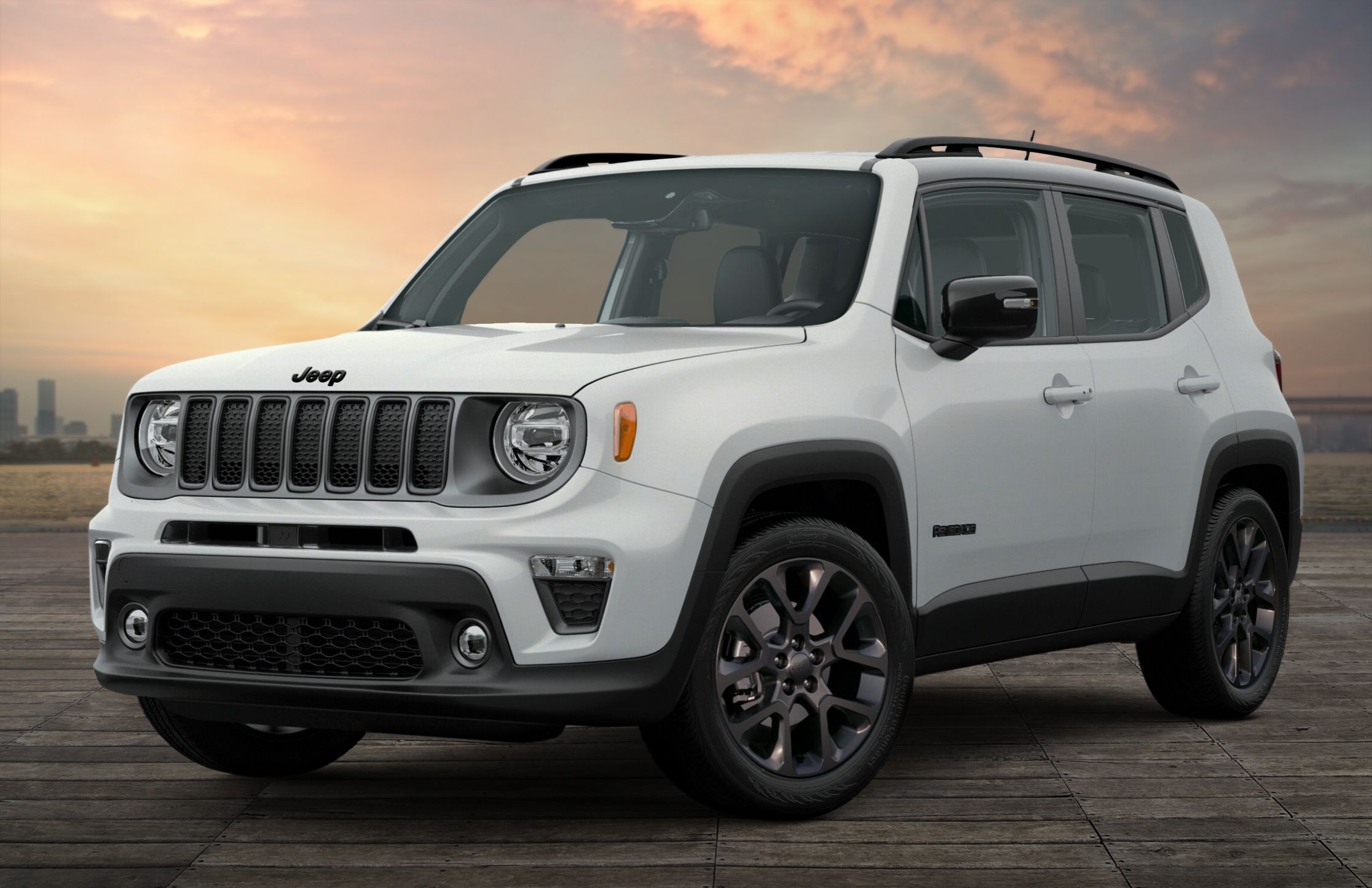
For Colorado drivers, these features translate into unmatched capability on trails like Black Bear Pass, Imogene Pass, or the hundreds of miles of designated OHV routes. The Rubicon isn’t just about getting there; it’s about confidently conquering the journey.
Navigating the Colorado Market: Where to Find Your Rubicon
Finding a Jeep Rubicon in Colorado offers several avenues, each with its own advantages and considerations.
Authorized Dealerships
- Pros: New models come with factory warranties and the latest features. Used vehicles often undergo multi-point inspections and may come with certified pre-owned (CPO) warranties. Financing options are readily available, and trade-ins are straightforward.
- Cons: Generally higher prices than private sales. Less room for negotiation.
- Where to Look: Major metropolitan areas like Denver, Colorado Springs, Fort Collins, and Grand Junction have numerous Jeep dealerships. Check their online inventories regularly.
Private Sellers
- Pros: Often the best source for negotiating a lower price. You can sometimes find unique, well-maintained, or custom-built Rubicons. Direct communication with the previous owner can provide valuable insights into the vehicle’s history and modifications.
- Cons: "As-is" sales mean no warranty. More risk of undisclosed issues. Requires more vigilance in verifying vehicle condition and title.
- Where to Look: Online platforms like Craigslist (filter by Colorado), Facebook Marketplace (search local Jeep groups), dedicated Jeep forums (e.g., JL Wrangler Forums, JK-Forum with Colorado sections), and local classifieds.
Specialty Off-Road Shops & Consignment Lots
- Pros: These businesses often deal in pre-built or highly modified Rubicons. The vehicles are typically inspected by off-road experts, and the shops might offer their own limited warranties or stand behind the quality of their builds.
- Cons: Prices can be significantly higher due to the cost of modifications and professional labor.
- Where to Look: Research reputable 4×4 shops in areas known for off-roading, such as Denver, Colorado Springs, or Grand Junction.
Online Marketplaces
- Pros: Vast selection, allowing you to compare many vehicles from various sellers across the state. Advanced search filters make it easy to narrow down options by year, price, mileage, and features.
- Cons: You’ll still need to physically inspect the vehicle or arrange a pre-purchase inspection.
- Where to Look: AutoTrader.com, Cars.com, eBay Motors, CarGurus – ensure you filter results to Colorado.
Key Considerations When Buying a Rubicon in Colorado
The unique demands of Colorado’s environment and the nature of Rubicon ownership necessitate specific considerations.
- Mileage and Condition: A Rubicon used for its intended purpose (off-roading) will show wear. Look beyond superficial scratches. Inspect the undercarriage for significant dents on skid plates, axle housings, or frame rails. Check for excessive rust on suspension components or welds (less common in Colorado’s dry climate but still possible). High mileage isn’t necessarily a deal-breaker if maintenance was diligent.
- Modifications: Many Colorado Rubicons are modified.
- Pros: The vehicle might already have the upgrades you desire (lift kits, larger tires, aftermarket bumpers, winches, upgraded axles). This can save time and money compared to buying stock and modifying yourself.
- Cons: Poorly installed modifications can lead to issues (death wobble, premature wear, safety concerns). Ensure modifications are from reputable brands and professionally installed. Ask for receipts for parts and labor. Understand that extensive modifications can sometimes void factory warranties.
- Engine Type:
- 3.6L Pentastar V6: The most common and reliable engine. Performs well at altitude but can feel a bit underpowered on steep mountain passes.
- 2.0L Turbo (JL): Offers good low-end torque and better fuel economy, which can be advantageous at higher altitudes.
- 3.0L EcoDiesel V6 (JL): Excellent torque for crawling and better fuel economy for long trips, though the upfront cost is higher.
- 6.4L V8 (Rubicon 392): Unmatched power and sound, but significantly higher price and fuel consumption. Ideal for performance enthusiasts.
- Transmission: Both manual and automatic transmissions are popular. Manuals offer more control for some off-roaders, while automatics are generally easier for slow crawling and daily driving.
- Body Style: 2-door Rubicons are more agile and have a shorter wheelbase, making them ideal for tight trails. 4-door Unlimited models offer more passenger and cargo space, better stability on road, and are popular for overlanding.
- Soft Top vs. Hard Top: Colorado’s weather is unpredictable. A hard top offers better insulation, security, and noise reduction, especially useful for snowy winters. A soft top provides the ultimate open-air experience but offers less protection from elements and noise. Many owners opt for both or a modular hard top.
- Service History: Crucial for any used vehicle, but especially a Rubicon that sees hard use. Look for consistent oil changes, differential fluid changes, transfer case service, and any records of repairs or preventative maintenance.
The Buying Process: Tips for a Smooth Transaction
Once you’ve identified a potential Rubicon, follow these steps to ensure a confident purchase.
- Market Research: Understand the fair market value for the specific year, model, mileage, and condition of the Rubicon you’re interested in. Use resources like Kelley Blue Book (KBB), Edmunds, and NADA Guides, and compare prices of similar vehicles listed in Colorado.
- Initial Inspection: Conduct a thorough visual inspection. Look for fluid leaks, tire wear patterns (uneven wear can indicate alignment issues or worn suspension components), signs of body damage, and check all lights and accessories. Test all 4×4 modes, including locking differentials and sway bar disconnect.
- Pre-Purchase Inspection (PPI): This is non-negotiable, especially for private sales or modified vehicles. Take the Rubicon to an independent mechanic specializing in 4x4s or Jeeps. They can identify underlying mechanical issues, poorly done modifications, or potential red flags that an untrained eye might miss. This small investment can save you thousands later.
- Test Drive: Drive the Rubicon on various roads (highway, city, and if possible, a short gravel road or light trail) to assess its on-road manners, acceleration, braking, and steering. Listen for unusual noises.
- Negotiation: Be prepared to negotiate, especially with private sellers. Factor in any identified repair needs from the PPI. Don’t be afraid to walk away if the deal doesn’t feel right.
- Financing and Insurance: If purchasing from a dealership, explore their financing options but also check with your bank or credit union for pre-approval. Inform your insurance provider about any modifications to ensure adequate coverage.
- Title and Registration: Ensure the seller has a clear title. In Colorado, you’ll need to transfer the title and register the vehicle at the Department of Motor Vehicles (DMV) within 60 days of purchase.
Owning a Rubicon in Colorado: Beyond the Purchase
Owning a Rubicon in Colorado is an experience unto itself, but it comes with responsibilities.
- Maintenance: Regular maintenance is paramount, especially after off-road excursions. Check fluids (engine oil, differential fluid, transfer case fluid), inspect suspension components for damage, and check tire pressure.
- Upgrades and Customization: The aftermarket for Jeeps is immense. Popular upgrades for Colorado trails include larger, more aggressive tires, upgraded suspension systems (lifts), heavy-duty bumpers, rock sliders, and recovery gear (winch, recovery straps, shackles).
- Off-Roading Ethics: Adhere to "Tread Lightly!" principles: stay on designated trails, pack out what you pack in, respect wildlife, and avoid sensitive ecosystems. Colorado has strict rules about off-road vehicle use to protect its natural beauty.
- Community: Join local Jeep clubs or online forums. The Colorado Jeep community is vibrant and welcoming, offering opportunities for group rides, technical advice, and camaraderie.
Potential Challenges and Solutions
- High Demand & Price: Rubicons hold their value exceptionally well, especially in Colorado.
- Solution: Be patient. Broaden your search radius. Consider slightly older models (e.g., a well-maintained JK Rubicon) or those with higher mileage if the service history is impeccable.
- Finding a "Clean" Rubicon: Many Rubicons are bought to be used off-road, meaning some wear and tear is expected.
- Solution: Prioritize a comprehensive Pre-Purchase Inspection (PPI) from a trusted mechanic who understands off-road vehicles. Don’t shy away from minor cosmetic flaws if the mechanicals are sound.
- Understanding Modifications: Deciphering the quality and purpose of aftermarket parts can be daunting.
- Solution: Research common modifications. If possible, bring along a knowledgeable friend or expert during your inspection. Ask the seller for documentation (receipts, installation details) for major upgrades.
Price Table: Jeep Rubicons For Sale In Colorado (Estimated Ranges)
Please note: These are estimated price ranges and can fluctuate significantly based on exact year, mileage, overall condition, specific trim packages (e.g., Xtreme Recon), and the extent and quality of any aftermarket modifications. Market demand in Colorado also plays a role.
| Model/Generation | Year Range | Typical Price Range (USD) | Key Factors Influencing Price |
|---|---|---|---|
| Jeep Wrangler JK Rubicon | 2007-2018 | $20,000 – $40,000 | Mileage, condition, 2-door vs. 4-door, modifications, engine (3.6L V6) |
| Jeep Wrangler JL Rubicon | 2018-Present | $40,000 – $70,000+ | Year, mileage, 2-door vs. 4-door, engine (2.0L Turbo, 3.6L V6, 3.0L EcoDiesel), trim level, modifications |
| Jeep Wrangler JL Rubicon 392 | 2021-Present | $70,000 – $90,000+ | Low mileage, V8 engine, specific features, limited availability |
| Heavily Modified Rubicons (JK/JL) | Varies | $30,000 – $80,000+ | Quality/cost of modifications (axles, suspension, engine swaps), professional build vs. DIY, overall condition |
| Brand New JL Rubicon | Current Model Year | $50,000 – $85,000+ | Trim level, options, engine, dealership markups |
Disclaimer: These figures are estimates and should be used as a general guide. Always conduct thorough market research for specific vehicles.
Frequently Asked Questions (FAQ) about Jeep Rubicons in Colorado
Q: Is a Rubicon overkill for Colorado’s trails?
A: While some Colorado trails can be traversed by less capable 4x4s, a Rubicon is far from overkill. Its specialized features provide an unparalleled margin of safety, capability, and confidence, especially on the state’s more challenging passes and rock crawling routes. It allows you to explore deeper into the backcountry.
Q: What’s the best year/generation Rubicon to buy for Colorado?
A: Both the JK (2007-2018) and JL (2018-Present) Rubicons are excellent choices. JK models offer a more traditional Jeep feel and are often more budget-friendly for a capable rig. JL models offer modern amenities, improved on-road manners, and more engine options. The "best" depends on your budget, desired features, and comfort with technology vs. raw off-road focus.
Q: Should I buy a modified Rubicon or build my own?
A: Buying modified can save you time and potentially money if the modifications are exactly what you want and were professionally installed. However, you inherit someone else’s build. Building your own allows for complete customization to your specific needs and preferences, but it requires more time, research, and often a higher upfront investment. For Colorado, many prefer to start with a stock Rubicon and build it to their specific trail aspirations.
Q: How important is a Pre-Purchase Inspection (PPI)?
A: Extremely important. A PPI by an independent, trusted mechanic specializing in 4x4s is crucial. They can identify potential mechanical issues, frame damage, or poorly executed modifications that might not be obvious to an untrained eye, saving you from costly surprises down the road.
Q: What are common problems to look out for in used Rubicons?
A: Depending on the generation, common issues can include death wobble (often related to steering and suspension components), electrical gremlins (especially with aftermarket accessories), rust on specific components (even in dry Colorado), and wear on driveline components if heavily off-roaded without proper maintenance. Always check for signs of fluid leaks.
Q: Where are the best places to off-road in Colorado with a Rubicon?
A: Colorado offers an incredible array of trails. Popular destinations include the Alpine Loop (Ouray, Silverton, Lake City), Moab-adjacent trails near Grand Junction, trails in the Pike National Forest, and countless routes in the San Juan, Front Range, and Elk Mountains. Always research trail difficulty and regulations before heading out.
Q: How does altitude affect Rubicon performance?
A: All naturally aspirated engines (like the 3.6L Pentastar V6) lose power at higher altitudes due to thinner air. Turbocharged engines (2.0L) and diesels (3.0L EcoDiesel) are less affected. The Rubicon’s low gearing still helps immensely on steep climbs, but you’ll notice a power decrease compared to sea level.
Conclusion: Your Colorado Adventure Awaits
The pursuit of a Jeep Rubicon for sale in Colorado is more than just a vehicle purchase; it’s an investment in adventure and a gateway to exploring one of the most beautiful and rugged states in the nation. By understanding the Rubicon’s unique capabilities, knowing where to search in the Colorado market, and diligently following the buying process, you can confidently acquire a vehicle that will stand up to the demands of mountain trails and provide countless memories.
Remember to prioritize thorough inspection, especially a professional pre-purchase inspection, and don’t rush the decision. With the right Rubicon, Colorado’s vast wilderness transforms from a distant landscape into your personal playground. Get ready to embrace the spirit of freedom and capability that only a Jeep Rubicon can offer, and prepare for unforgettable journeys across the stunning landscapes of Colorado.
